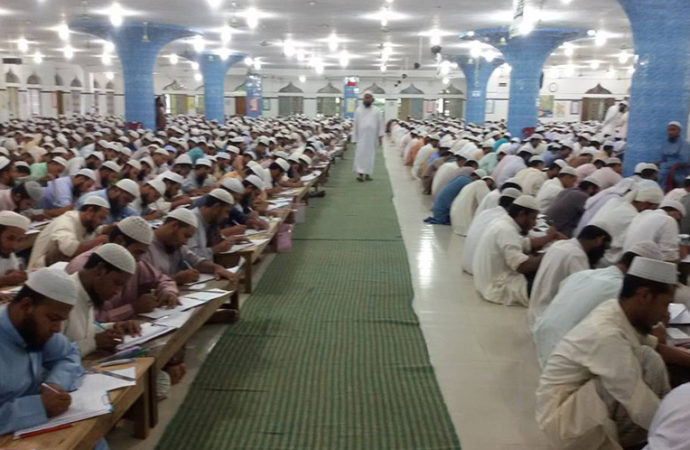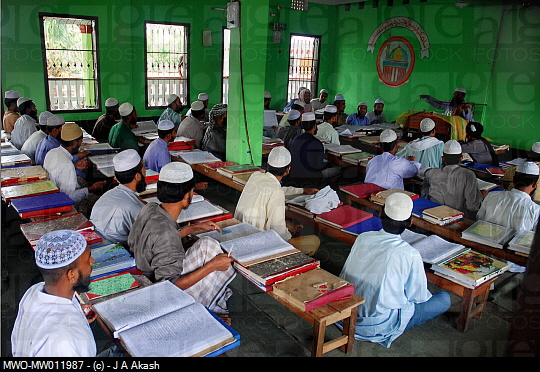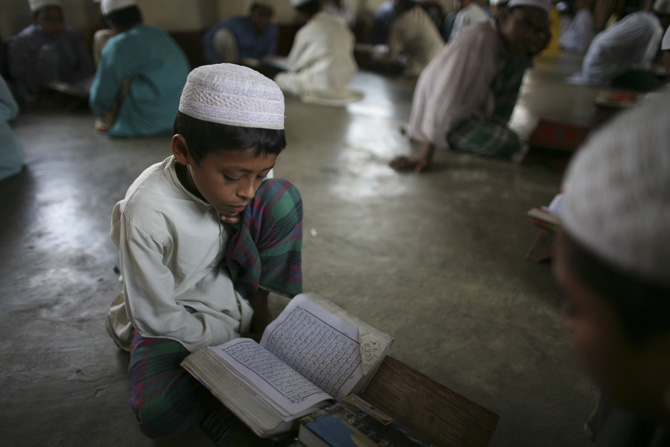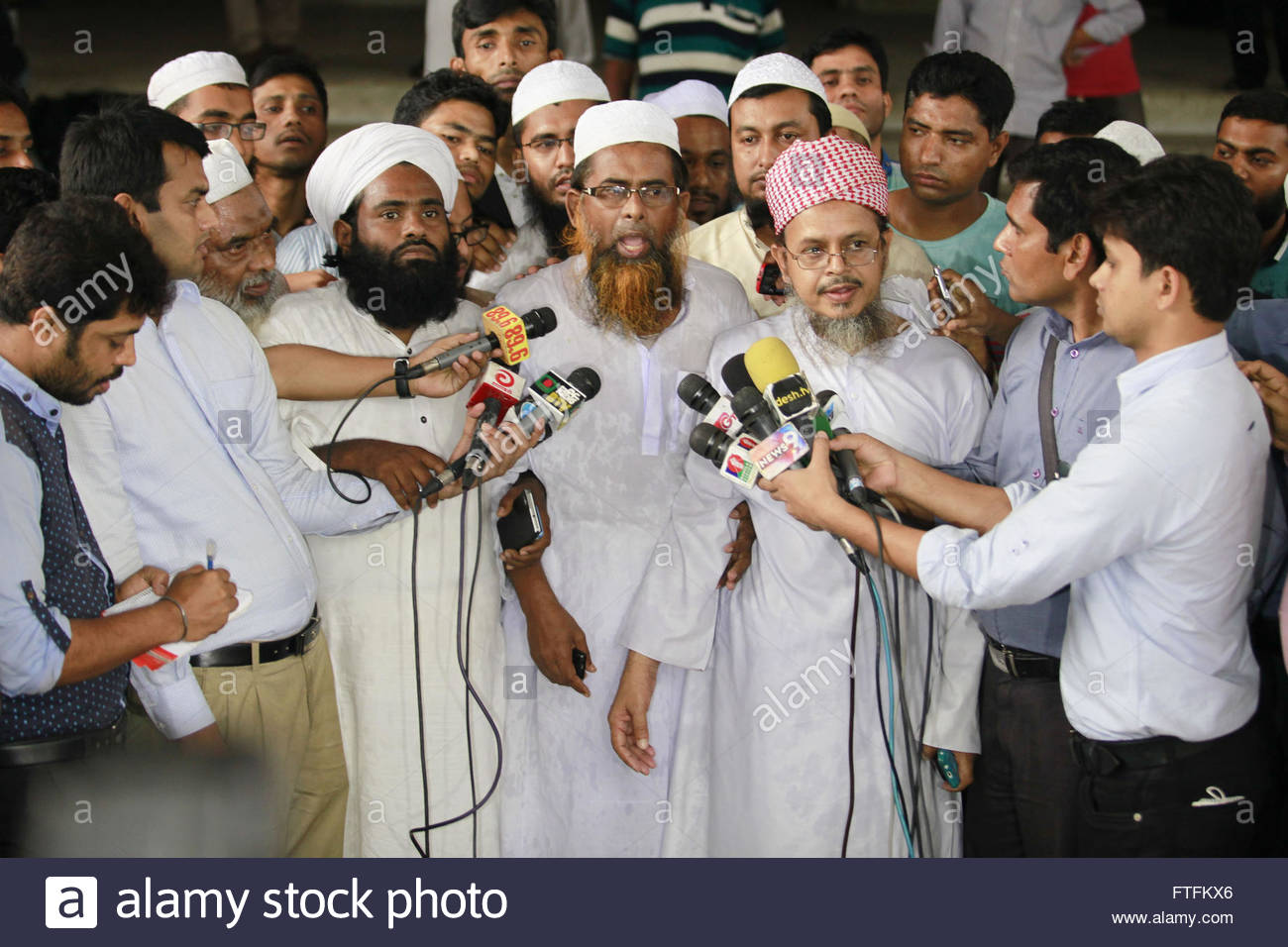The new textbooks of the Bangladesh Madrasa Education Board will not contain any chapters with lessons on Jihad, for the first time since ever.
The “Bangladesh Madrasa Education Board” – also known as the “Alia Madrasa Education Board” – is one of three types of madrasa education system in Bangladesh, alongside Qawmi and Hifz.
Since the inception of the board in 1979, chapters on Jihad were included in the madrasa textbooks from class VIII to degree level. “The government has directed us to remove the chapters on Jihad to curb controversy regarding the madrasa education system,” an insider from the Madrasa Education Board told the Dhaka Tribune.
Jihad has been defined in madrasa textbooks as a “struggle or fight against the enemies of Islam”. No need to go around hinting.
All chapters referring to it will be removed from the Alia board’s textbooks, which will be distributed to students in 2018.
Sources said the National Committee on Militancy Resistance and Prevention believes several chapters of the madrasa textbooks could have motivated students to participate in militant activities.
Under the circumstances, the Home Ministry sent a letter to madrasa board on April 24, 2017, asking it to remove the chapters from the textbooks that contain lessons about Jihad.
The ministry also directed the madrasa board to remove any articles or lessons contradictory to the constitution and “the spirit of the nation”.
Meanwhile, Assistant Secretary of the Education Ministry, Md Khalek Mia, issued a notice on September 28, 2017, ordering the formation of eight review committees and one supervisory committee to reevaluate the madrasa textbooks.
The committees have been tasked to reevaluate 15 books from classes I to V on subjects such as Quran Majeed (?), Akid (??), Fiqh (???), and the Arabic language. Twenty more textbooks from class VI and IX on the same subjects will also be reviewed.
The committees have been directed to carry out eight major tasks such as correcting or revising content which can inspire militancy, or any lessons contradictory to the beliefs of any group or community.
The committees will also help modernise the textbooks by updating related information, theories, and ideas and by improving the exercises to better evaluate the students. “Based on the recommendations of the National Committee on Militancy, we are thoroughly evaluating the textbooks on Quran, Hadith, Arabic and Fiqah,” Madrasa Education Board Chairman AKM Saif Ullah told the Dhaka Tribune. “The areas where the lessons could encourage controversial behaviour, especially militancy, are being excluded from the textbooks.”
After the madrasa textbooks have been evaluated according to the curricula guidelines under the National Education Policy 2010, the committees will submit a report on the finalised version of the textbooks to the supervision committee.
An insider working on one of the review committees said one of the textbooks of class VIII named “Al-Aqaid-ul-Fiqah” contains a number of controversial passages.
Along with lessons in prayers, zakat, fasting, halal rijik and hajj, there are detailed lessons on the nature of Jihad.
According to the textbook, Jihad is deeply rooted in the believer. It is connected with all aspects of the individual, including his or her family, society, state, economy and culture. It says a person is connected with Jihad “by the face, by the pen, by the means of land and by livelihood”.
The textbook also discusses the context of Qital (armed warfare).
Hefazat-e-Islam’s Secretary General Junaid Babunagari told the Dhaka Tribune that he did not see the necessity of the government initiative to reevaluate the textbooks. “Jihad does not automatically mean militant activity and not all students and teachers of madrasa are involved in militant acts,” he said.
However, the insider from one of the review committees confirmed that all lessons mentioning Jihad have been omitted from all textbooks scheduled to be published next year, while new discussions on Ibadat or prayer have been inserted.
Beyond this, there will be no major change in the textbooks, the Madrasa Board chairman told the Dhaka Tribune.
Along with the 35 textbooks mentioned above, the madrasa curriculum also includes essential subjects such as English, mathematics, Bangladeshi and world history, physical health, home science, physics, chemistry and biology, and economics.
Source: Dhaka Tribune




